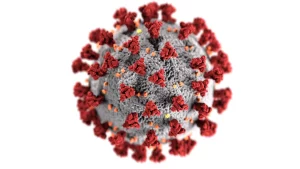AKI in patients with COVID-19, influenza, and RSV: age, comorbidities and outcomes

Why this important?
Acute Kidney Injury (AKI) is known to be a complication of moderate-severe COVID-19. This may be partly due to penetration of kidney cells by the virus through something called the Angiotensin Converting Enzyme 2 receptor. Nevertheless, other common respiratory viruses such as Influenza and Respiratory Syncytial Virus (RSV) are also associated with AKI.
In a recent paper by Shusterman, 2023, researchers compared age, comorbidities and outcomes in hospitalised AKI patients with COVID-19, influenza, and RSV.
What did the study show?
The researchers in Israel collected data of 2593 patients hospitalised with COVID-19, and compared it to 2041 patients with influenza and 429 with RSV.
In general, patients in the RSV group were older and had more comorbidities compared with the other two groups. In the COVID-19 group, hypertension and diabetes mellitus were less common than the RSV group, where hypertension and diabetes mellitus were most common.
Patients affected by RSV had higher rates of AKI (11.7% vs. 13.3% vs. 18% for COVID-19, influenza and RSV, respectively).
Patients with COVID-19 had the worst outcomes, with higher rates of death (18% vs 7% vs 13% for COVID-19, influenza, and RSV, respectively) and higher rates of need for mechanical ventilation (13% vs 6% vs 8% for COVID-19, influenza, and RSV, respectively). In the COVID-19 and influenza groups, those with AKI on admission had significantly longer lengths of stay.
In conclusion, contrary to other reports of AKI secondary to SARS-COV-2, AKI was less common in patients with COVID-19 compared to influenza and RSV patients. However AKI in COVID-19 patients had a higher mortality.
How does this affect you?
Most people with COVID-19, influenza and RSV do not get AKI, or need to be hospitalised. But if you are unwell, and are admitted, its important to make sure the doctors keep a close eye on your kidney function.
Last Reviewed on 16 November 2023
